-
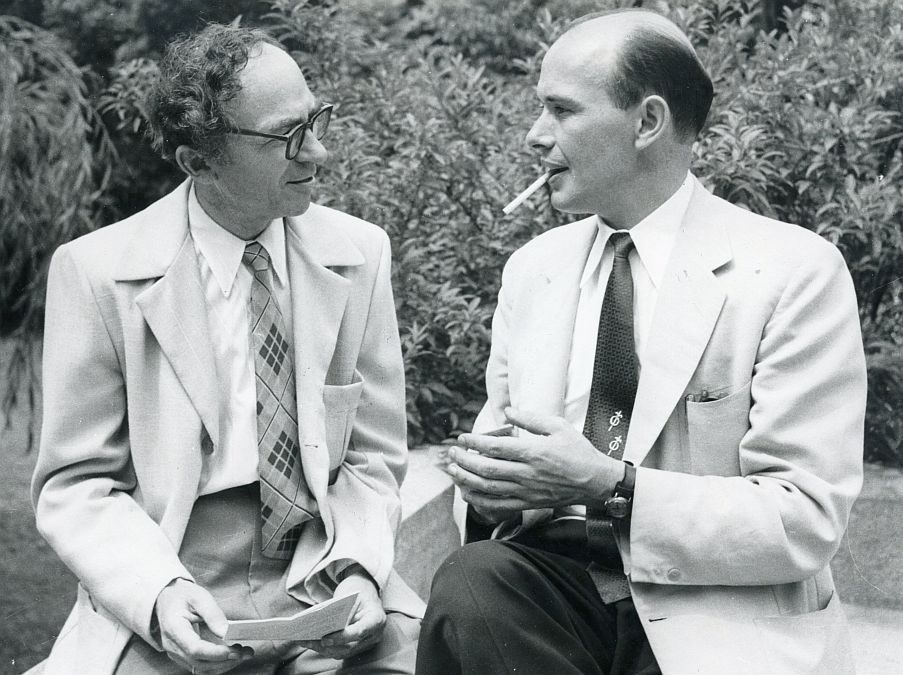
Paulius Jurkus and Bernardas Brazdžionis.
In a letter, dated February 9, 1989, LWA president Česlovas Grincevičius informed Paulius Jurkus, who was living in New York, that the members of the organization “had agreed on, voted, and elected a new board on the east coast of America … I write to you, since it was you, who took the initiative to invite these writers to join the board of directors and received their consent.” During the new Board’s first meeting on April 29, 1989, Jurkus became the chairman, Algirdas Landsbergis – vice-president for relations with writers of other nations, Tomas Venclova – vice-president for contacts with writers in Lithuania, Leonas Lėtas – treasurer, and Leonardas Andriekus and Danguolė Sadūnaitė – members of the board. At the meeting which took place on June 9 the new board announced Bernardas Brazdžionis an honorary member of Association.
-
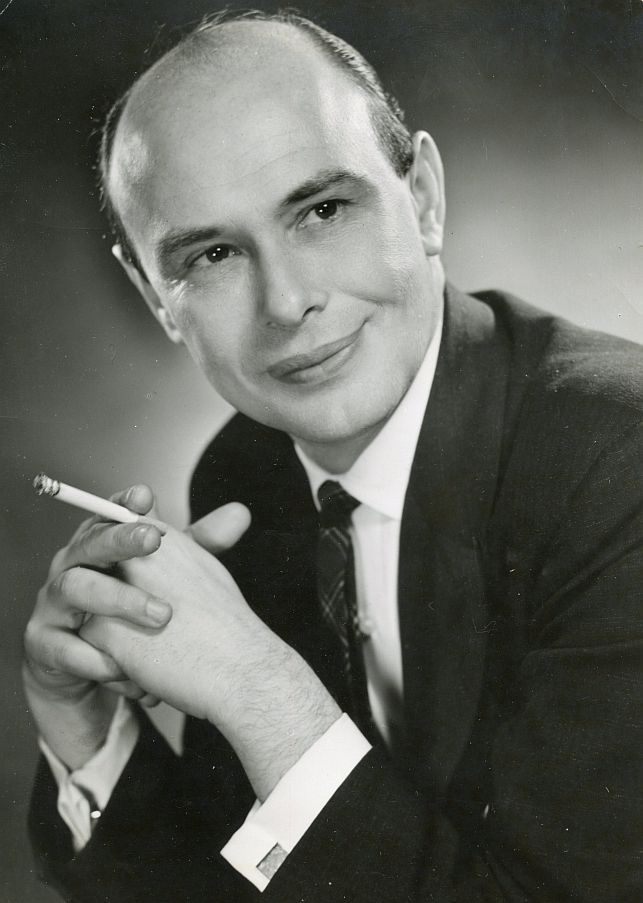
Writer and journalist Paulius Jurkus. Photo by Vytautas Maželis.
Paulius Jurkus was not new to the organization. He had held the position of secretary on every board of directors on the east coast, except that of Jonas Aistis. It seems that he also planned to become secretary, but not chairman, on this board as well. But he could not avoid it this time. Jurkus was to preside over the LWA and act as secretary for almost a decade, from 1989 to 1998.
-
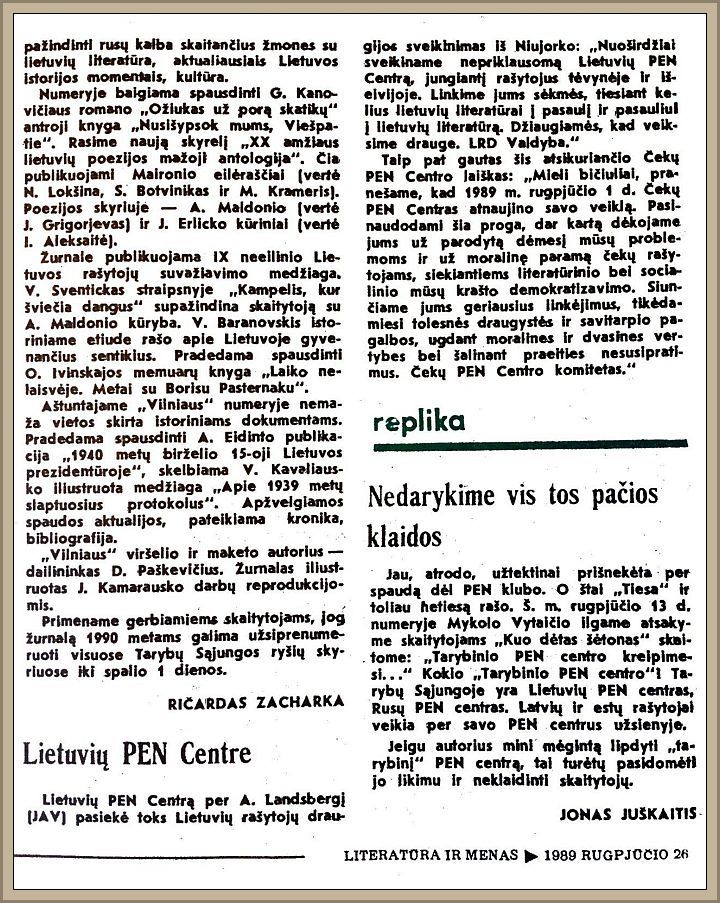
The LWA’s greeting to the Lithuanian Writers’ Union, published in Lithuania’s newspaper “Literatūra ir menas“ (Literature and the Arts) in August of 1989.
The start of Jurkus’ term of office coincided with the beginning of perestroika in the Soviet Union and with political changes taking place in Lithuania. Thus the new board began to pay more attention to contacts with writers in Lithuania and their organization, the Lithuanian Writers’ Union. One of its first steps in this area was a letter of greeting to Romualdas Lankauskas, president of the LWU, sent on July 27, 1989 on the occasion of the Lithuanian group’s official secession from the Soviet Writers’ Union.
-
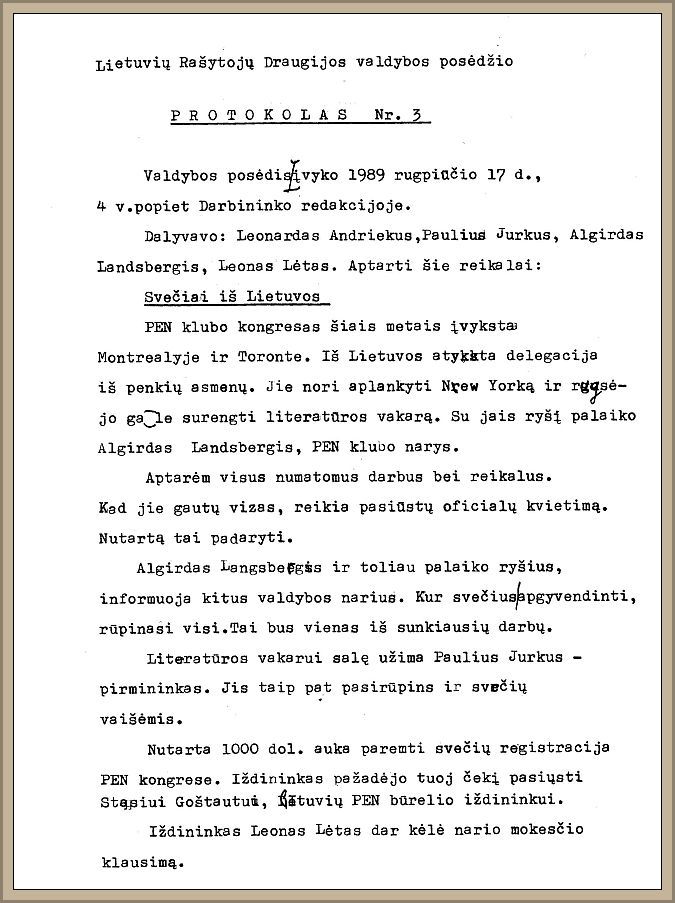
Minutes of the meeting no. 3 of the Board of Directors.
Less than a month after sending the letter of greeting to the LWU, the Jurkus Board of Directors discussed the upcoming visit of the delegation from Lithuania to the 54th Congress of the PEN Club in Canada and its wish to have a literary event organized for them at the end of September in New York. The meeting decided not only to send a formal invitation to the guests from Lithuania, which would facilitate their getting US visas, to arrange the literary evening, but also to give them financial support by paying their registration fees for the Congress.
-
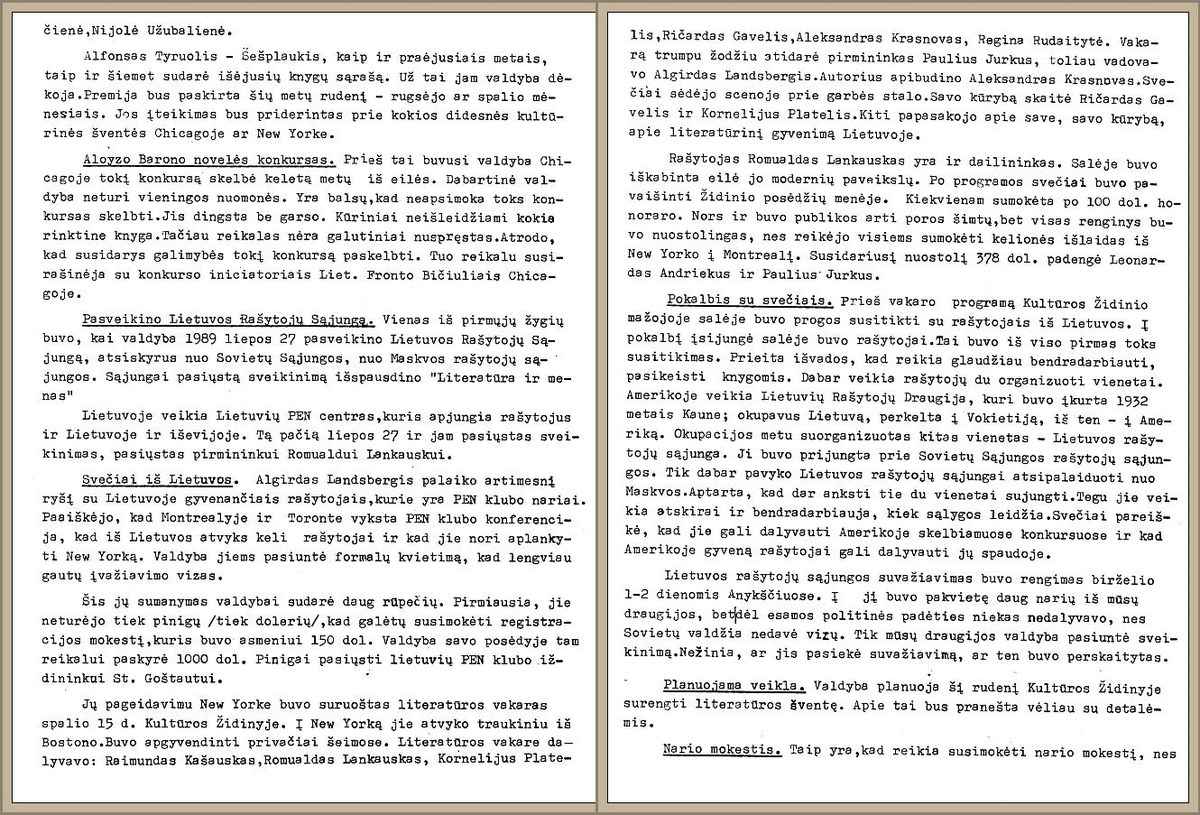
Excerpts from the LWA’s bulletin about the visit of writers from Lithuania in New York, August 15, 1990.
The literary evening with the visiting writers from Lithuania was held at Kultūros Židinys, the Lithuanian cultural center in New York on October 15, 1989. Participating guests from Lithuania were Raimundas Kašauskas, Romualdas Lankauskas, Kornelijus Platelis, Ričardas Gavelis, Regina Rudaitytė, and Aleksandras Krasnovas, who introduced the authors. Gavelis and Platelis read excerpts from their works, while others spoke about themselves, their works, and literary life in Lithuania. A conversation with the guests took place before the start of the official event. “It was the first such gathering,” the Board of Directors later noted in its bulletin (no. 1, August 15, 1990). It added that the evening’s participants concluded that both organizations should cooperate more closely by allowing writers from Lithuania to participate in literary contests in the US and Lithuanian-Americans in the press in Lithuania. Representatives of both organizations discussed the possibility of a merger, but it was decided not to rush into it.
-
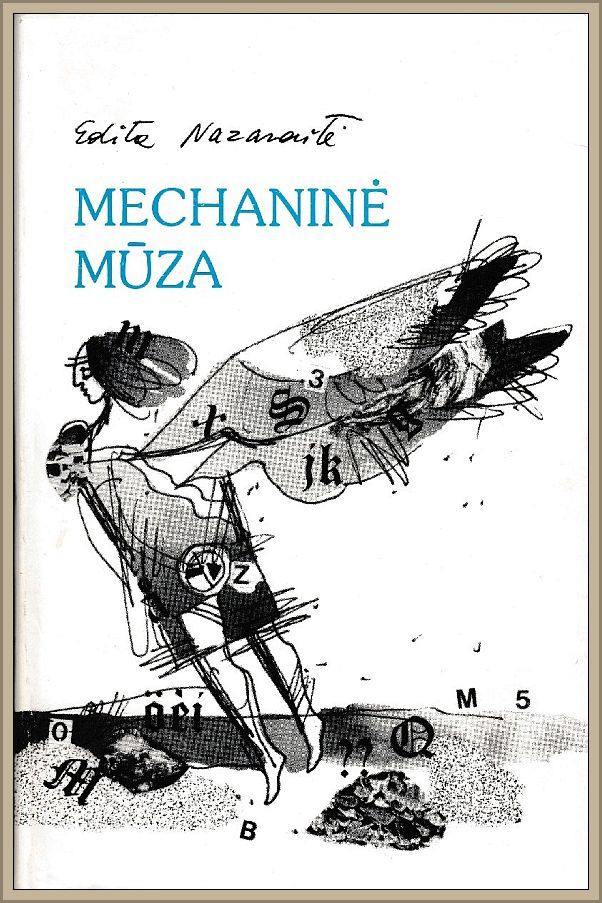
Cover of Nazaraitė’s prize-winning book “Mechaninė mūza” (The Mechanical Muse).
The winds of change also began to blow at the LWA Literary Awards. The 1989 award went to Edita Nazaraitė, who had emigrated to Canada from the then Soviet Republic of Lithuania in 1984, for her book of poetry Mechaninė mūza (The Mechanical Muse). The event took place at the Lithuanian cultural center in New York on November 17, 1990.
-
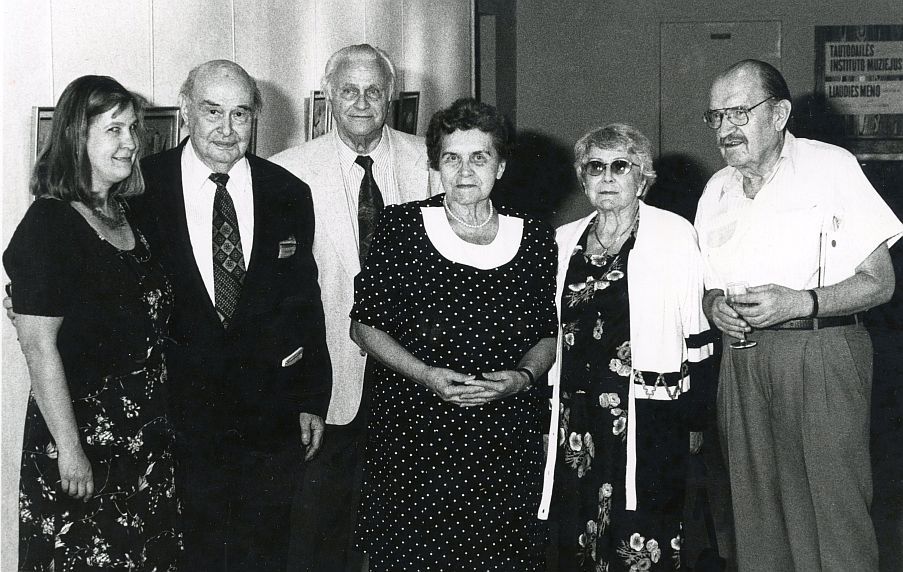
Members of the Association. From left: Daiva Karužaitė, Paulius Jurkus, Stasys Džiugas, Stasė Petersonienė, Julija Švabaitė-Gylienė, and Algirdas Titus Antanaitis.
Towards the end of his term in office, on February 17, 1991, Jurkus wrote to his friend and colleague Grincevičius: “We have to look for a new board. I no longer wish to and am unable to continue to be what I am. A great deal of work falls on my foolish head. Where should we form the new board? My eyes are on Chicago. How would it be if we choose a woman as president? This is the age of women.” Jurkus would have a seven-year wait until 1998.
-
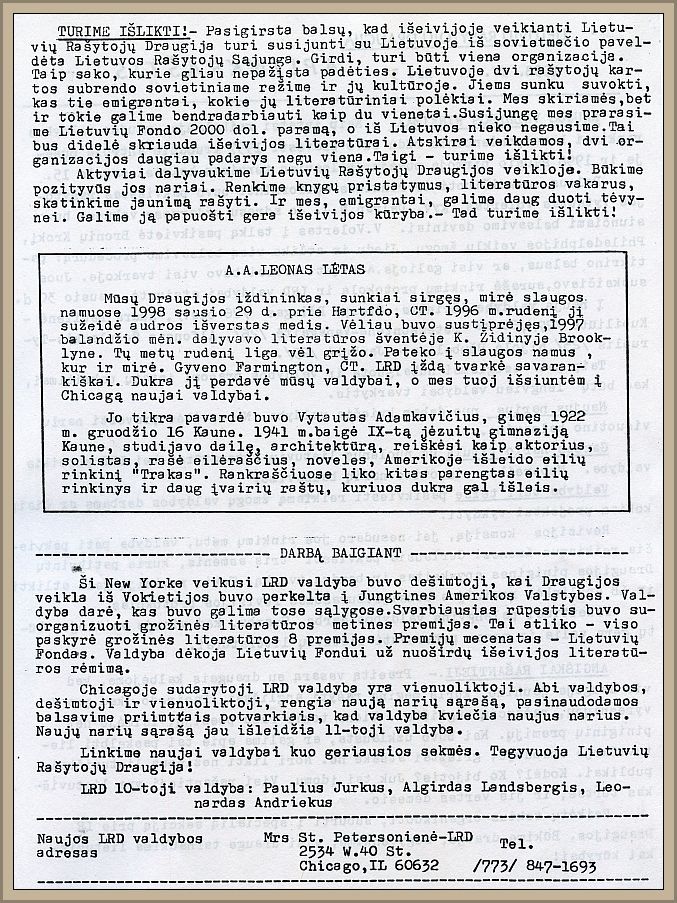
Excerpt from the final issue of the bulletin published by the Jurkus board (no. 3, April 1, 1998).
Jurkus’ name is no longer listed as a member of the Board of Directors elected on December 1997-January 1998. A few important changes were made in the organization’s statute and listed in the final bulletin (no. 3, April 1, 1998). The board of directors, as the organization's executive body, was granted greater rights: from then the board itself would invite new members to join and also grant honorary membership to the Association, without taking a general vote. It also reserved the right to invite a person from outside the organization to help the board with its daily activities and other projects. An important point was made by the Jurkus board regarding a merger of the two organizations, the LWA and the Lithuanian Writers’ Union. In the opinion of the old board, “The two organizations will achieve more only by acting separately.” LWA members were encouraged to remain and actively participate in their own organization, rather than to consider a merger.
